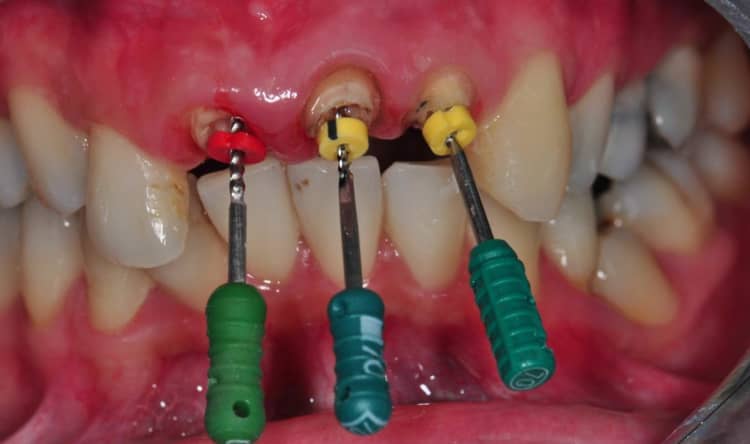That’s a good question. When a patient has dental trauma and the trauma isn’t that severe, that means the tooth can be saved, the first step is always to do root canal treatment to save the tooth. After root canal treatment you might need to do a porcelain crown to cover the tooth.
But the dentist would also say that the root canal treatment doesn’t last forever. Root canal treatment just buys the tooth extra time. It could be 5 years, it could be 10 years, it could be 15 years or even 20 years. Eventually one day the root canal treatment will fail, and when it fails, whenever that happens, then you would need to extract the tooth and do an implant at that time.
There could be many reasons why the root canal treatment fails. It could be that the tooth cracked, it could be that the root canal becomes reinfected, it could be that the gum disease around the root canal-treated tooth. There could be a few reasons why the root canal treatment eventually fails. That’s why your dentist has warned you that one day you would need to do an implant. The root canal treatment just prolongs the life of the tooth.
Another interesting question is that there are patients who say that “in that case, I don’t want to do a root canal, I just want to remove the tooth and do the implant straight away since I know that the root canal will fail one day eventually”.
I usually don’t advise that because there’s nothing better than your own tooth. Having your own tooth is always better than having an implant. So I normally always try to advise patients to lean towards having the root canal done first, prolonging the life of the tooth, and eventually years down the road when the root canal fails then we deal with the implant.





